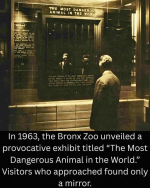
In the 1930s, a young Black man with no medical degree and no formal training walked into Vanderbilt University. His name was Vivien Thomas, and he was about to revolutionize heart surgery.
Despite his brilliance, racism confined him to the title of "janitor"—even as he performed groundbreaking surgical research. Working alongside Dr. Alfred Blalock, Thomas quickly proved he had a rare gift for medicine.
In 1941, Blalock insisted that Thomas follow him to Johns Hopkins University, where they delved into life-saving research. But Thomas wasn’t just an assistant—he was the mind behind the surgical technique that would save thousands of infants suffering from “Blue Baby Syndrome.”
When the first surgery was performed in 1944, Blalock held the scalpel, but Thomas stood behind him—guiding every move. That historic operation laid the foundation for modern open-heart surgery.
For years, his contributions remained in the shadows. But in 1976, Johns Hopkins finally honored him with a doctorate and a faculty position, recognizing the genius they had long overlooked.
Vivien Thomas didn’t just assist in heart surgery—he redefined it. His legacy is proof that talent knows no barriers, only opportunities waiting to be seized..
Vivien Thomas' story is a lesson in recognizing talent and opportunity without any barriers. Discover more about his contributions and learn how we can learn from his journey.

ifeg.info

 www.facebook.com
www.facebook.com

 www.facebook.com
www.facebook.com





















